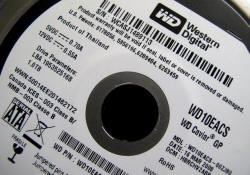|
Exclusive: Japan to vet
bidders in Toshiba chip sale for national security risks
- sources
 Send a link to a friend
Send a link to a friend
 [March 10, 2017]
By Kentaro Hamada and Makiko Yamazaki [March 10, 2017]
By Kentaro Hamada and Makiko Yamazaki
TOKYO
(Reuters) - The Japanese government, fretting over the future of Toshiba
Corp's flagship memory chips unit, is prepared to block a sale to
bidders it deems a risk to national security, sources said, a stance
that gives U.S. suitors a major advantage.
The government would use Japan's foreign exchange and foreign trade laws
to control the auction if need be, one of the sources said. The sources
are directly involved in the sale process, but declined to be identified
because it is not public.
"The United States is the only feasible partner from Japan's national
security standpoint," said another source, noting that cutting-edge
chips are at the heart of robotics, artificial intelligence and
connected devices.
Seeking to plug an upcoming $6.3 billion writedown for its U.S. nuclear
unit Westinghouse and create a buffer for future potential losses,
Toshiba is rushing to sell most or even all of the unit - world's
second-biggest NAND chip producer - which it values at at least $13
billion.

With Westinghouse woes deepening to the point of it hiring bankruptcy
lawyers to explore a possible Chapter 11 filing, the Japanese industrial
conglomerate is also leaning towards U.S. suitors given the potential
for friction with the United States.
"It's obvious U.S. players are more suitable bidders," a Toshiba
executive said. "We'll probably need to fight over Westinghouse (with
the U.S.), so we could cooperate over chips in exchange."
U.S. suitors include data storage firm Western Digital which operates a
Japanese chip plant with Toshiba, rival Micron Technology Inc and
financial investors like Bain Capital, sources have previously said.
Preferring those bidders would exclude others including South Korean
chipmaker SK Hynix Inc, Taiwan's Foxconn, the world's largest contract
electronics maker, and TSMC, the world's biggest contract chip
manufacturer.
Only Foxconn has publicly said it plans to bid while SK Hynix has said
it is considering an offer. A Toshiba spokeswoman declined to comment on
the specifics of the sale process.
Japan is concerned the firesale could hand key capabilities to rival
China, sources with knowledge of the matter have said.
[to top of second column] |

A Western Digital Corporation hard drive is pictured here in
Encinitas, California April 19, 2011. REUTERS/Mike Blake/File Photo

Japan's Foreign Exchange and Foreign Trade Act dictates that an overseas company
looking to buy a Japanese company with technology considered key to national
security must obtain government permission in advance.
It has been rarely used directly but in 2011, the law deterred foreign suitors
from bidding to buy a stake in medical equipment and camera maker Olympus Corp
as optical technology is also used in military equipment, financial sources
said.
Japanese Trade Minister Hiroshige Seko at a parliamentary committee on Wednesday
declined to comment when asked if Toshiba's memory chips would be considered
sensitive technology.
The sale is being conducted as Toshiba faces a March 14 deadline to publish its
earnings after postponing their release a month ago so that it could probe
potential problems at Westinghouse. If it misses that date, it has eight working
days to March 27 to file or face a possible delisting from the Tokyo bourse.
People familiar with the matter have told Reuters that Westinghouse, hit by huge
cost overruns at two U.S. projects, had brought in law firm Weil Gotshal &
Manges LLP as an exploratory step, but had not yet taken a decision on a
bankruptcy filing.

Japan's finance minister said on Friday the company should decide in the coming
weeks whether to file for Chapter 11 bankruptcy, freeing it up to report up to
date earnings.
(Reporting by Kentaro Hamada and Makiko Yamazaki; Additional reporting by Emi
Emoto; Editing by Clara Ferreira Marques and Edwina Gibbs)
[© 2017 Thomson Reuters. All rights
reserved.] Copyright 2017 Reuters. All rights reserved. This material may not be published,
broadcast, rewritten or redistributed. |